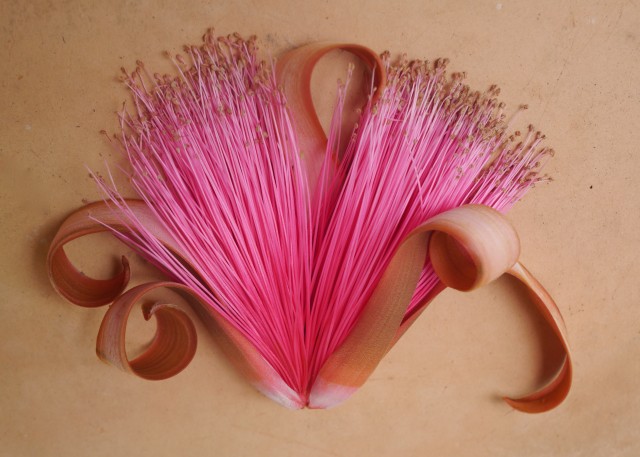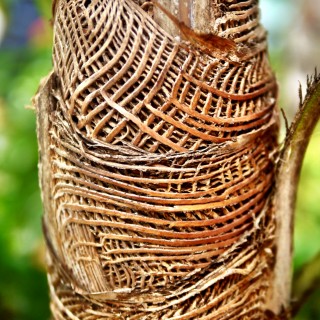
Bottlebrush Blossom
** Books mentioned have Amazon affiliate links, meaning I make a few cents if you purchase through my link. I only recommend books that I’ve read.
A U.C. Berkeley study, recently published in the journal, Emotion, is making news through several outlets cited below. It posits that the experience of positive emotions, particularly awe and wonder, lowers inflammation and promotes healing.
That awe, wonder and beauty promote healthier levels of cytokines suggests that the things we do to experience these emotions – a walk in nature, losing oneself in music, beholding art – has a direct influence upon health and life expectancy, said UC Berkeley psychologist Dacher Keltner, a co-author of the study.
How is wonder different from awe?
If you’ve been reading this site for awhile, you know that wonder is a contemplative habit that can be cultivated through photography. Awe and wonder are often used interchangeably, although there is a subtle difference between the two. The dictionary definitions, adapted from Merriam-Webster, are a way to start.
Wonder: a feeling of astonishment or admiration caused by something that is surprising, beautiful, or amazing.
Wonder is the beginning of all wisdom. Wonder is the first of all passions. Wonder is the beginning of all writing. Wisdom, emotions, and creativity – all borne from wonder. ~ Jeffrey Davis, Tracking Wonder
Awe: an emotion that combines dread, veneration, and wonder. It is inspired by authority or by the sacred or sublime.
In the upper reaches of pleasure and on the boundary of fear is a little studied emotion – awe. Awe is felt about diverse events and objects, from waterfalls to childbirth to scenes of devastation. Awe is central to the experience of religion, politics, nature, and art. Fleeting and rare, experiences of awe can change the course of a life in profound and permanent ways.” ~ Keltner and Haidt, 2003 Caltech Study
The study details the differences between the two. Wonder results in admiration, but awe adds the element of fear or submission, the sense of being in the presence of something larger than oneself. It can be frightening at times.
Other Healing Benefits from Awe
 * Perception of time expands
* Perception of time expands
* Become more patient
* More willing to volunteer time or help others
* Prefer experiences over material things
* Greater life satisfaction
via a 2012 Stanford Study on Time and Awe
We can experience wonder and awe in several ways, but being out in nature is one of the best. Practicing photography is a great way to get us outside.
I was recently in Florida, where the flora and fauna are completely different from what I’m used to at home. This led to many moments of wonder as I noticed new forms of bark and blossoms – like the bottlebrush blossom at the top of this post and the basket-weave type bark on this palm tree.
Nature Deficit Disorder
On the flip side, not experiencing nature is epidemic, especially in our western culture, resulting in what Richard Louv, author of Last Child in the Woods, coined as “nature deficit disorder.” He is particularly concerned about children, and believes that the lack of connection to nature can lead to behavioural problems.
Louv, the author of the bestsellers Last Child in the Woods (2005) and The Nature Principle (2011), coined the term “nature-deficit disorder” to describe the loss of connection children increasingly feel with the natural world. Nature-deficit disorder is not a clinically recognized condition, he explains, but rather a term to evoke a loss of communion with other living things. Nevertheless, he argues, nature-deficit disorder affects health, spiritual well-being, and many other areas, including [people’s] ability to feel ultimately alive. ~ Interview with Richard Louv at National Geographic
Carol Albers introduced me to a new social media campaign begun by videographer Louis Schwartzberg aimed to beat nature deficit disorder (#BeatNDD). I hope you’ll join me and Carol in spreading the word.
When did you last experience awe or wonder?
Related Links
How Feelings of Awe Lower Inflammation – Traci Pedersen, Spirituality & Health
Kim, what a rich article on Wonder and Awe with all the links which I checked out. I especially enjoyed the article on the Center for Courage and Renewal and have downloaded your PDF called ‘Experience Wonder’. I was also interested in the article on how feelings of awe can lower inflammation. The latter is something I have to deal with these days. Lovely photography to illustrate your posting. Thank you!
P.S. I’m just listening to Shubert’s “Ave Maria” as mentioned in the Berkeley study. Beautiful and uplifting!
Thats it Kim -pass on the good!!! Great post, with so many terrificreferences -thank you. I find that when you spread joy and wonder the awe expands!
Wonderful and awesome post, Kim. Such a great summary of its benefits. You always have very helpful links too. Thanks!
What gorgeous images to inspire our feelings of awe and wonder.
i was so glad to stumble across this article and page. As early as the mid-60s I was telling people that part of the troubles in this world are because we have generations of people who have had minimal contact with Mother Earth. The disconnection with nature spilling over into how we relate to each other. Now I have a label I can attach to it: NDD, Nature Deficit Disorder. Thank you!